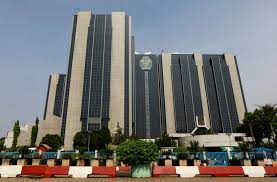Nigeria and Saudi Arabia reached agreements on Friday on a number of cooperation and investment agreements. Among these was the Saudi government’s commitment to finance the renovation of Nigeria’s oil refineries and to support the government’s foreign exchange reforms.
The agreements were made during a private meeting that Saudi Crown Prince Mohammed bin Salman and Nigerian President Bola Tinubu had outside of the Saudi-Africa summit in Riyadh.
Nigeria has undergone the most radical reforms in decades under Tinubu, including the elimination of a well-liked gasoline subsidy and the unification of the nation’s several exchange rates as part of initiatives “aimed at improving the ease of doing business.”
However, with the naira trading at a premium on the black market, liquidity has not yet returned to the official currency market.
“A substantial deposit of foreign exchange to boost Nigeria’s forex liquidity” was the promise made by the Saudi government, according to Information Minister Mohammed Idris.
Furthermore, according to Idris, the Saudi government will fund the renovation of Nigeria’s four dilapidated state refineries through Saudi Aramco, which should be finished in two to three years.
Nigeria is looking for new investments to help boost its economy, which is struggling due to low foreign exchange, double-digit inflation, high levels of crime, and theft of its main export, crude oil.
The leading oil exporter in Africa has prioritized generating its fuels for years, but attempts to modernize its refineries have been unsuccessful, leaving it dependent on imports.
As he worked to improve relations between the two nations, Tinubu also gave prospective Saudi investors confidence that their money in the biggest economy in Africa would be secure, a representative for the governor stated earlier on Friday.
Speaking at the Saudi-African conference in Riyadh, Tinubu assured investors of “some of the world’s highest returns on investment,” according to media representative Ajuri Ngelale.
In addition, he advocated for cooperation in the fight against Islamist militants, such as Boko Haram, and other security threats in the most populous country in Africa.
Both bilaterally and multilaterally, Nigeria and Saudi Arabia have long had a unique relationship. Our bilateral collaboration has diversified over the past 60 years to address several areas of shared interest, according to a representative for Tinubu.
The two nations furthered their economic connections on Thursday by signing a memorandum of understanding for cooperation in the oil and gas sector.
To “develop a comprehensive road map and blueprint” to deliver on the investments, the two leaders decided to collaborate over the course of the following six months, according to Idris.




















